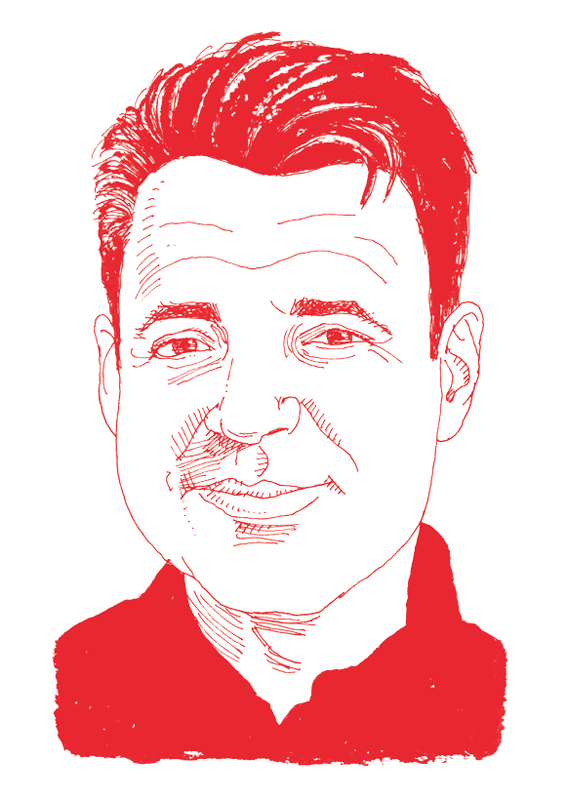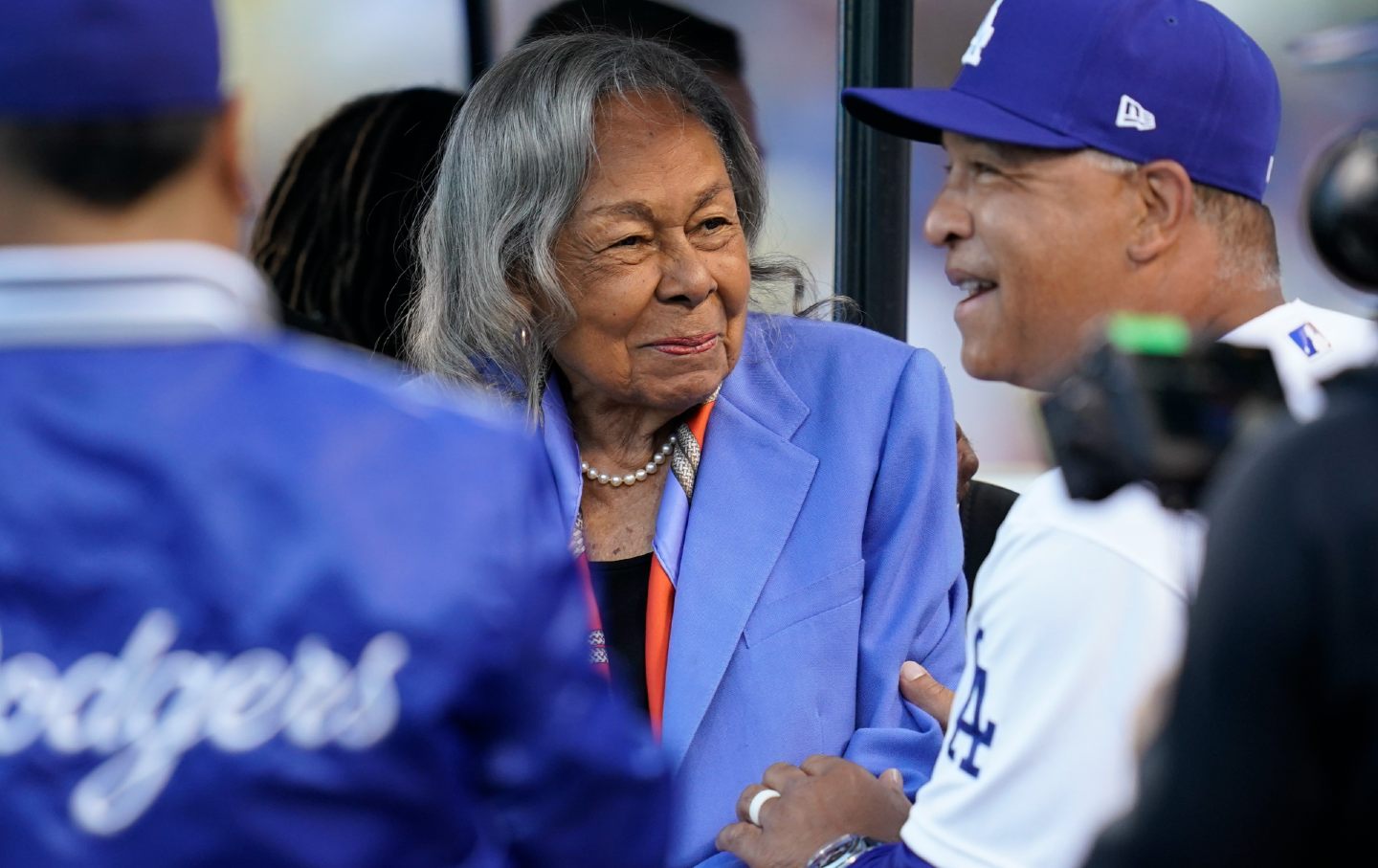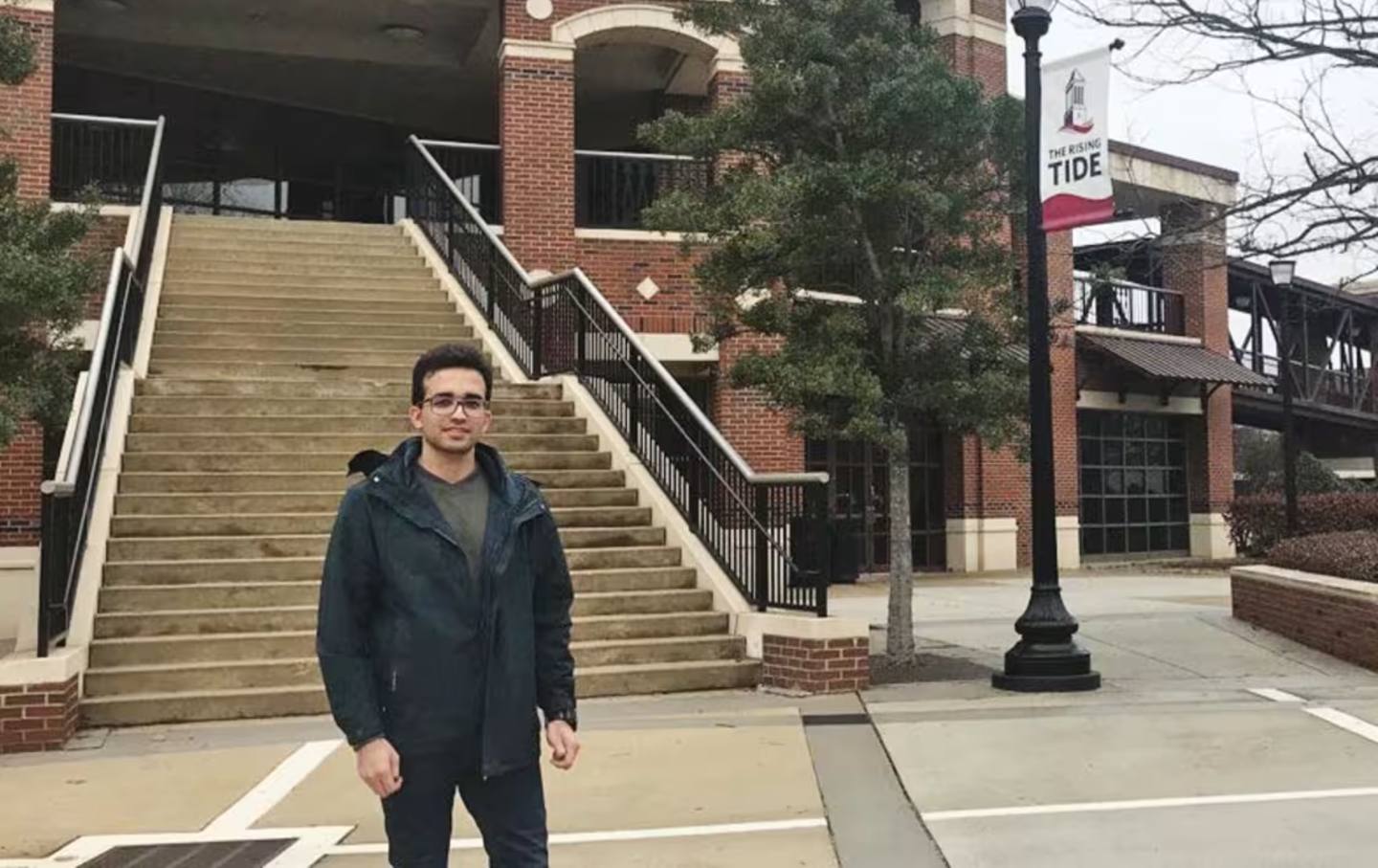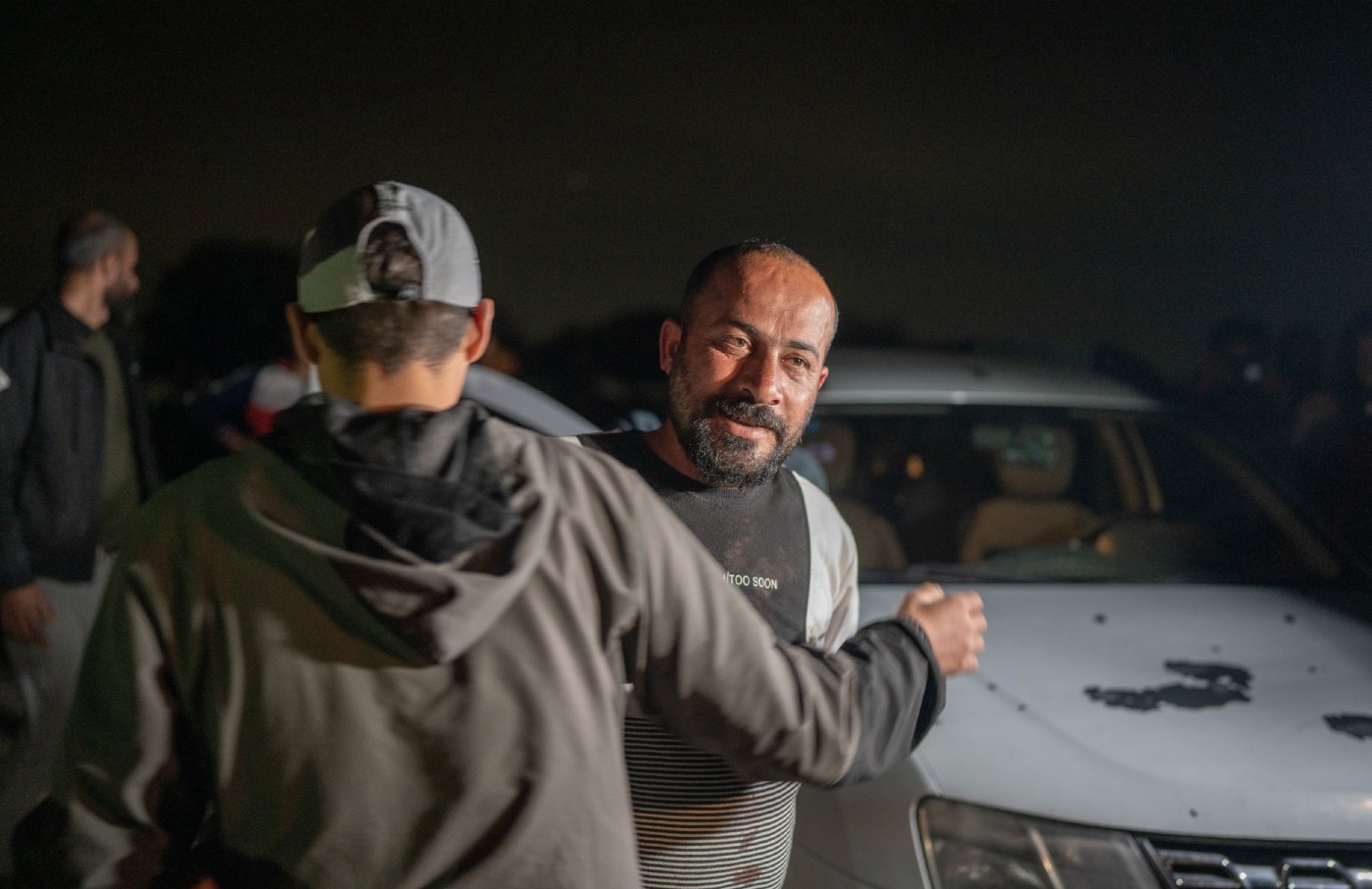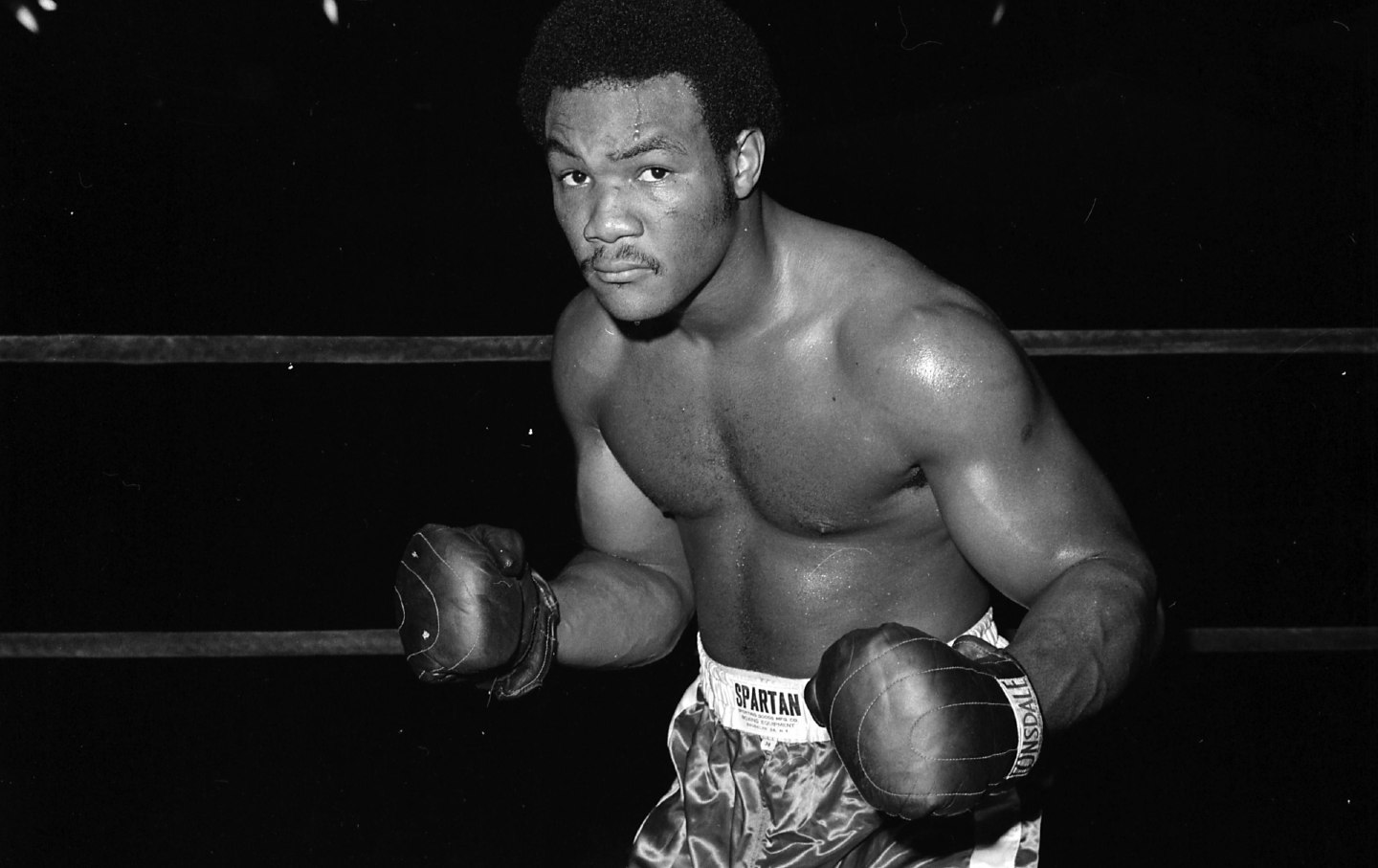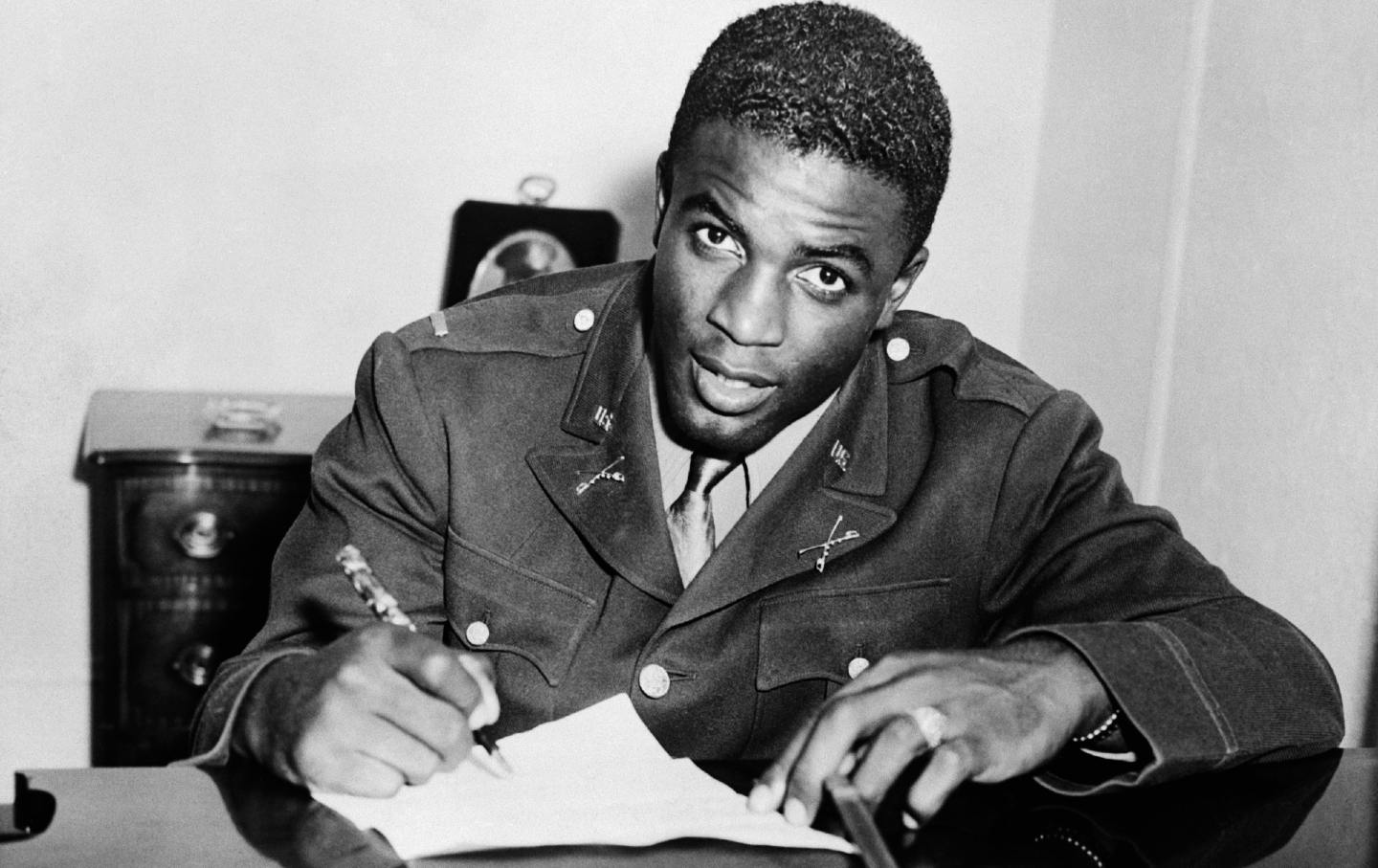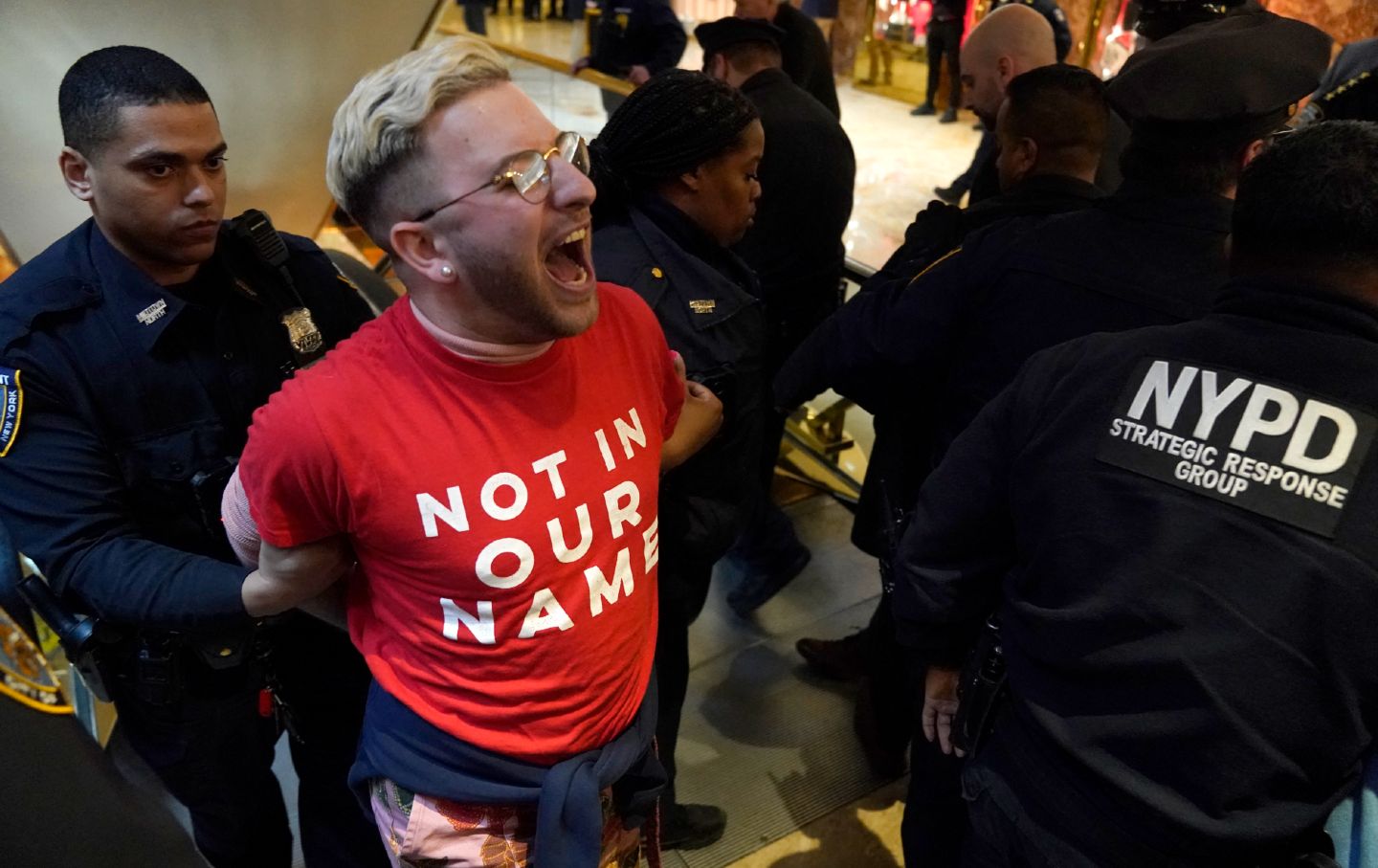Jonathan Glazer’s Brave Oscar Speech Represents the Best of Judaism
Instead of confronting what the director of The Zone of Interest actually said, Zionists distorted his lines.
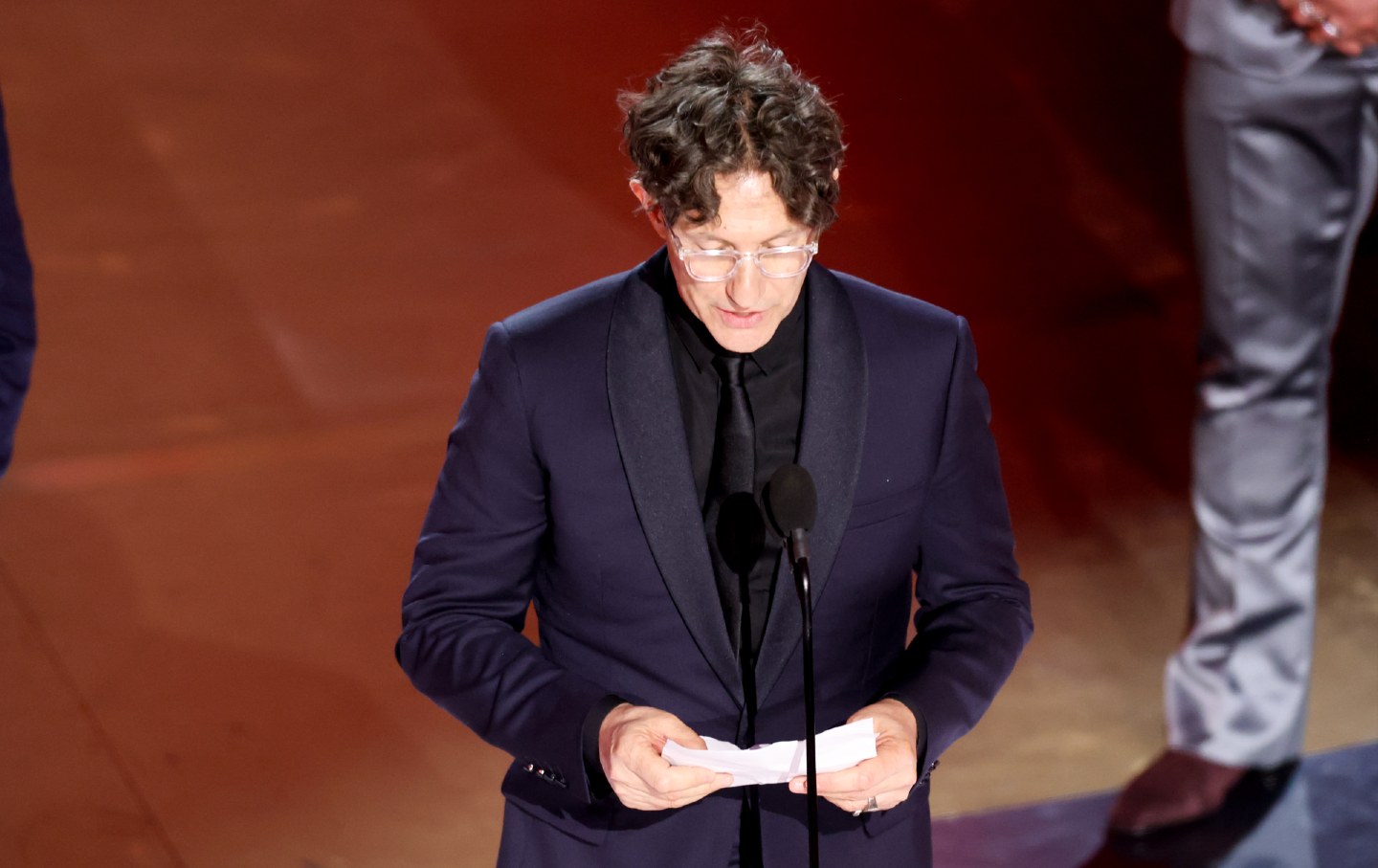
Jonathan Glazer accepts the Best International Feature Film award for The Zone of Interest at the 96th Annual Oscars held at Dolby Theatre in Los Angeles on March 10.
(Rich Polk / Variety via Getty Images)I came of political age animated by the quip, “Two Jews, three opinions.” I was around people who argued, weighed pros and cons, and hashed out differences no matter how intense the disagreements. Sometimes no common ground could be found. But as rough as these debates could be, they were rooted in fact. Today though, the Zionist catchphrase should now be “a million Jews, no opinions.” Too many Zionists will brook no disagreement with Israel’s war on Gaza and are willing to distort the truth to defend it.
The director Jonathan Glazer is finding that out this morning. His speech at the Oscars, after winning Best International Feature Film for The Zone of Interest, explained the way his faith and the memory of the Holocaust have been weaponized to support the Israeli occupation of Palestine as well as the current carnage. It was beautiful and brave. His exact words were, “Right now we stand here as men who refute their Jewishness and the Holocaust being hijacked by an occupation which has led to conflict for so many innocent people. Whether the victims of October the 7th in Israel, or the ongoing attack on Gaza, all the victims, this dehumanization, how do we resist?”
The response of the right wing has not been debate and discussion. It’s been lies, obfuscation, and vulgarity. There’s the editor of Commentary, John Podhoretz, who tweeted, “By saying he refutes his Jewishness [my emphasis] on the biggest stage in the world five months after the attack on Israel, Jonathan Glazer has instantly made himself into one of Judaism’s historical villains.”
Others parroted this line. Batya Ungar-Sargon, the opinion editor at the right-wing infomercial formerly known as Newsweek, tweeted, “I simply cannot fathom the moral rot in someone’s soul that leads them to win an award for a movie about the Holocaust and with the platform given to them, to accept that award by saying, ‘We stand here as men who refute their Jewishness…’” This was mimicked by all kinds of media bottom feeders. The common thread with all of them is that, rather than reckon with Glazer’s argument that his “Jewishness and the Holocaust [are] being hijacked by an occupation,” they only—and shamelessly—use part of the quote as a way to make it sound like Glazer is rejecting his religion and culture, when the opposite is obviously the case. He is actually reclaiming his culture from the pampered pro-Israel media prizefighters who argue that Judaism and Zionism are one and the same: that a 5,500 year old religion and culture must exist only as the support system for a 76-year-old colonial ethno-state. To call out this lie is a daring and dangerous act, and Glazer should be commended for standing in the tradition of debate—not of calumny and lies.
This is especially fitting given Glazer’s film: a chilling and shattering look at Nazism in the form of an idyllic Nazi officer’s home right outside Auschwitz. There is nothing “banal” about the evil on display in this film; a family frolics in a stream as bones and body parts float past them. It would be easy to read the film as a remembrance of the horror perpetrating on the Jewish people. But Glazer, as he has been collecting awards, has made perfectly clear: The phrase “never again” is not a Jewish slogan but something that must be raised every time a people are subject to genocide. He also said at the Oscars, “All our choices are made to reflect and confront us in the present. Not to say, ‘Look what they did then,’ rather ‘Look what we do now.’… Our film shows where dehumanization leads at its worst. It’s shaped all of our past and present.”
Glazer was the only Oscar winner to say anything about Gaza—rather shocking, given the stereotype of Hollywood, as George Clooney claimed in his unctuous speech a decade ago, that this is a bastion of liberalism. Hollywood is more of a PEP squad: progressive except for Palestine. Yet, if Glazer’s voice was the only one from the podium to acknowledge that these horrors were taking place while people were sitting snugly in their Vera Wangs, he was far from alone. The ceremony was delayed as solidarity protests blocked roads around the venue. It was a reminder that people are trying to stop the violence and win a permanent cease-fire in every corner, every college campus, every cultural arena in the country. That is, except for the Oscars, where the call for justice and peace were on mute. As Jews, our tradition of debate could not be more rich. It says so much about the Podhoretzes of the world—and how alien they truly are to Jewish tradition—that they want to take this tradition of debate and put a stake in its heart.

